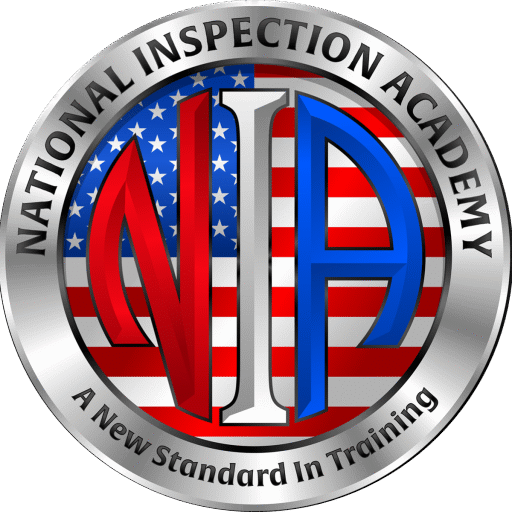The Non-Destructive Testing (NDT) industry is experiencing unprecedented growth, with the global market projected to reach $22.34 billion by 2030. As artificial intelligence transforms traditional inspection methods and aging infrastructure demands more sophisticated testing capabilities, the need for skilled NDT professionals has never been greater.
What Are NDT Training Courses?
NDT training courses prepare professionals to inspect and evaluate materials, components, and assemblies without causing damage to the original part. These comprehensive programs cover essential testing methods including:
- Ultrasonic Testing (UT) – Using high-frequency sound waves to detect internal flaws
- Radiographic Testing (RT) – Employing X-rays or gamma rays to reveal internal structures
- Magnetic Particle Testing (MT) – Detecting surface and near-surface discontinuities in ferromagnetic materials
- Liquid Penetrant Testing (PT) – Identifying surface-breaking defects in non-porous materials
- Eddy Current Testing (ET) – Detecting flaws in conductive materials using electromagnetic induction
Why Choose Professional NDT Training?
Industry-Standard Certification Requirements
Professional NDT training ensures compliance with critical industry standards including ASME, API, and ISO requirements. The National Inspection Academy provides training aligned with:
- SNT-TC-1A guidelines – American Society for Nondestructive Testing recommended practice
- ISO 9712 certification – International standard for NDT personnel qualification
- ASME Section V – Construction code requirements for nondestructive examination
High-Demand Career Opportunities
The NDT field offers exceptional job security across multiple industries:
- Oil & Gas Industry: Pipeline integrity and refinery inspections
- Aerospace Sector: Aircraft component testing and maintenance
- Manufacturing: Quality control and failure analysis
- Power Generation: Nuclear, wind, and traditional power plant inspections
- Infrastructure: Bridge, building, and transportation system evaluation
Comprehensive NDT Training Program Structure
Level I Certification Training
Entry-level training covers fundamental principles and hands-on practice:
- Duration: 40-80 hours depending on method
- Requirements: High school education or equivalent
- Scope: Basic testing techniques under supervision
- Practical Training: Real-world application on actual components
Level II Certification Training
Advanced training for independent testing and evaluation:
- Duration: 80-120 hours plus experience requirements
- Requirements: Level I certification and relevant experience
- Scope: Independent testing and result interpretation
- Leadership Skills: Training to supervise Level I technicians
Level III Certification Training
Expert-level training for method development and program management:
- Duration: Extensive experience and examination requirements
- Requirements: Minimum 4 years NDT experience
- Scope: Method development and training program oversight
- Strategic Focus: Advanced problem-solving and quality management
The AI Revolution in NDT Training
The integration of artificial intelligence is transforming NDT practices, creating new training requirements:
AI-Enhanced Detection Capabilities
Modern NDT professionals must understand AI-powered systems that achieve >98% accuracy compared to traditional 70-88% human detection rates. Training programs now include:
- Computer vision systems for automated defect recognition
- Machine learning algorithms for predictive maintenance
- Digital twin technology for continuous asset monitoring
Continuous Professional Development
With AI processing inspection data in milliseconds versus minutes for human interpretation, NDT professionals need ongoing education to stay current with technological advances.
Career Advancement and Earning Potential
Entry-Level Positions
- NDT Technician Level I: $45,000 – $60,000 annually
- Quality Control Inspector: $42,000 – $55,000 annually
Mid-Career Opportunities
- NDT Technician Level II: $65,000 – $85,000 annually
- Inspection Supervisor: $70,000 – $90,000 annually
Senior-Level Positions
- NDT Level III Specialist: $90,000 – $120,000+ annually
- Quality Assurance Manager: $95,000 – $130,000+ annually
Choosing the Right NDT Training Provider
Industry Experience: Look for training providers with real-world inspection experience. The National Inspection Academy’s connection to PROtect ensures students learn from professionals actively working in refining, petrochemical, manufacturing, and oil & gas industries.
Equipment Access: Hands-on training with current industry equipment is essential. Modern training facilities should include both traditional NDT equipment and emerging AI-powered inspection systems.
Certification Support: Comprehensive exam preparation and ongoing certification maintenance support.
Job Placement Assistance: Strong industry connections facilitating graduate employment opportunities.
National Inspection Academy Advantages
As part of the PROtect family of companies, National Inspection Academy offers unique advantages:
- Real-World Experience: Instructors are active inspection professionals
- Industry Connections: Direct pipeline to employment with nearly 1,000 PROtect clients
- Cutting-Edge Technology: Training on both traditional and AI-enhanced inspection methods
- Comprehensive Support: From initial training through career advancement
Starting Your NDT Career Journey
Immediate Steps
- Research Prerequisites: Understand basic requirements for your chosen NDT method
- Schedule Facility Tour: Visit training facilities to evaluate equipment and instruction quality
- Connect with Professionals: Network with current NDT practitioners in your target industry
- Plan Certification Timeline: Develop a strategy for progression from Level I to Level III
Long-Term Career Strategy
The NDT profession offers exceptional growth potential, particularly for professionals who embrace technological advancement. With AI transforming inspection capabilities and predictive maintenance becoming standard practice, trained NDT professionals will play increasingly critical roles in industrial safety and efficiency.
Conclusion
NDT training courses provide entry into a high-demand, recession-resistant career field with excellent advancement potential. As industries increasingly rely on sophisticated inspection techniques to ensure safety and compliance, qualified NDT professionals will remain essential.
The National Inspection Academy’s comprehensive training programs, combined with PROtect’s industry leadership, provide students with the skills, certifications, and connections needed for successful NDT careers. Whether you’re starting a new career or advancing existing skills, professional NDT training represents a smart investment in your future.
Ready to begin your NDT career? Contact the National Inspection Academy today to learn about upcoming training courses and certification opportunities. Your path to a rewarding, high-tech career in industrial inspection starts here.
